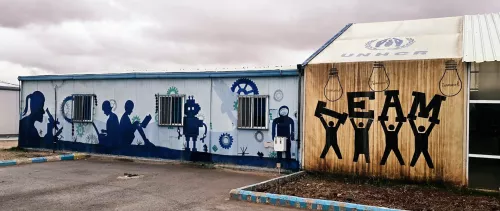
Global call for frontier technologies, impactful partnerships and collaborative financing approaches to unleash the power of connectivity
More than a year and a half into the COVID-19 pandemic, amid relentless global demand for broadband services, the Broadband Commission for Sustainable Development has reaffirmed its call for digital cooperation, innovation with information and communication technologies (ICTs), and collaborative approaches to secure universal connectivity and access to digital skills.
The Commission's State of Broadband Report 2021, released during the meeting, outlines the impact of pandemic policies and calls for a concerted, people-centred push to close the world's persistent divide. In the world's least developed countries (LDCs), no more than a quarter of the population is online.
"Digital cooperation needs to go beyond access to broadband," said H.E. President Paul Kagame of Rwanda, Co-Chair of the Commission. “We also need to close the gap in the adoption and use of affordable devices and services, in accessible content, and in digital literacy."
More than 50 Commissioners and special guests, representing government leaders, heads of international organizations and private sector companies, civil society and academia, affirmed that people-centred solutions must be at the heart of building a sustainable path towards universal broadband.
Commission co-Chair Carlos Slim, Founder of Carlos Slim Foundation and Grupo Carso, added: “To achieve our universal connectivity goal, we need to work together. We need to build a digital future that is inclusive, affordable, safe, sustainable, meaningful and people centred. We need to support infrastructure and to deal with affordability and relevant content to ensure usage. For that to happen, it requires concerted efforts."
Connectivity for sustainable development
The Annual Fall Meeting, held in a virtual format, underscored the need to accelerate digital connectivity to fulfil the United Nations Agenda for 2030, centred on 17 Sustainable Development Goals.
“The absence of digital skills remains the largest barrier to Internet use," noted Audrey Azoulay, Director-General of the United Nations Educational, Scientific and Cultural Organization (UNESCO) and co-Vice Chair of the Commission. “Digital education must therefore be as much about gaining skills as about developing the ability to think critically in order to master the technical aspects and be able to distinguish between truth and falsehood."
“UNESCO's Media and Information Literacy curriculum, launched in Belgrade, Serbia, in April, provided a key tool to boost skills," she added.
A newly released Commission report on distance and hybrid learning cites the need to foster digital skills along with expanding broadband infrastructure.
State of Broadband 2021
Houlin Zhao, Secretary-General of the International Telecommunication Union (ITU) and Commission co-Vice Chair, warned that the pandemic had further exacerbated the global digital divide.
“I'm concerned that digital technologies and services, which have proven so essential during the crisis, are still out of reach, unaffordable, irrelevant, too complicated to use, or not secure enough for far too many people around the world," he said. “I was pleased to see that the State of Broadband report calls for additional investments to advance progress towards universal access."
Commissioners – recognizing the increasing role of digital technologies in all facets of economic activity – shared current strategies to incentivize investment in digital literacy, connectivity, and skills. Discussions spanned joint actions, initiatives, and hands-on, replicable solutions to boost broadband connectivity, drive capacity and policy development, and address persistent disparities of access, affordability, adoption and use.
Need for targeted collaboration
Other key speakers included H.E. Minister Abdulla Shahid, President Elect of the 76th Session of the UN General Assembly; Klaus Schwab, Executive Chairman and Founder of the World Economic Forum; and Maria Francesca Spatolisano, Interim Officer in Charge at the Office of the UN Secretary-General's Special Envoy on Technology.
In view of the massive investments needed, the group exchanged views on collaborative and innovative financing approaches to make it “worth the risk" to fund universal connectivity.
In the world's 46 LDCs, only 25% of the population is online, noted Courtney Rattray, Under Secretary General and High Representative for the LDCs, Landlocked Developing Countries and Small Island Developing States (UN-OHRLLS) and a newly appointed Commissioner. He urged the Commission to prioritize connectivity in in those countries ahead of the Fifth UN Conference on the LDCs, set to happen in Doha, Qatar, in January 2022.
The Commission heard progress reports from its current Working Groups on key topics:
- 21st Century Financing for Sustainable Development
- Working Group on Virtual and Data-Driven Health
Newly launched Working Groups will tackle additional issues in the months ahead:
- Smartphone Access
- AI Capacity Building
- Data for Learning
New Commissioners welcomed at this fall session include the Honourable Mia Mottley, Prime Minister of Barbados, H.E. Eng. Majed Sultan Al Mesmar, Director General of the Telecommunications and Digital Government Regulatory Authority of the United Arab Emirates; Professor Mercedes Aráoz, former Vice President and Minister of Peru; and Dr. Rumman Chowdhury, Founder of Parity AI., as well as Courtney Rattray of UN-OHRLLS.

